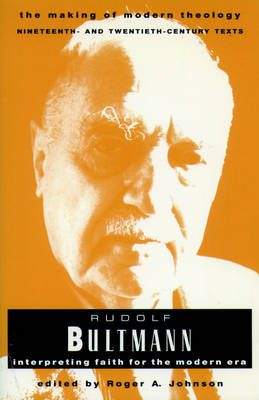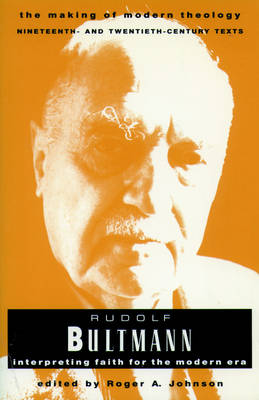
- Afhalen na 1 uur in een winkel met voorraad
- Gratis thuislevering in België vanaf € 30
- Ruim aanbod met 7 miljoen producten
- Afhalen na 1 uur in een winkel met voorraad
- Gratis thuislevering in België vanaf € 30
- Ruim aanbod met 7 miljoen producten
Zoeken
€ 43,95
+ 87 punten
Omschrijving
Bultmann's pioneering study of the New Testament initiated a new era in biblical studies in the Twentieth Century. Together with Karl Barth, Bultmann broke with liberal theology, but his often misunderstood program of demythologization took him in a radically different direction from Barth. In many respects Bultmann set the agenda for biblical theology in the decades following World War II. This volume concentrates on the key texts and ideas in Bultmann's thought. It presents the essential Bultmann for students and the general reader. Roger Johnson's introductory essay and notes on the selected texts set Bultmann in his historical context, chart the development of his thought, and indicate the significance of his theology in the development of Christian theology as a whole. Substantial selections from Bultmann's work illustrate key themes: God as "Wholly Other" Jesus and the Eschatological Kingdom Existentialist interpretation Kerygma Faith and Modernity in conflict Demythologizing: controversial slogan and theological focus
Specificaties
Betrokkenen
- Auteur(s):
- Uitgeverij:
Inhoud
- Aantal bladzijden:
- 352
- Taal:
- Engels
- Reeks:
Eigenschappen
- Productcode (EAN):
- 9780800634025
- Verschijningsdatum:
- 1/09/1991
- Uitvoering:
- Paperback
- Formaat:
- Trade paperback (VS)
- Afmetingen:
- 140 mm x 215 mm
- Gewicht:
- 489 g

Alleen bij Standaard Boekhandel
+ 87 punten op je klantenkaart van Standaard Boekhandel
Beoordelingen
We publiceren alleen reviews die voldoen aan de voorwaarden voor reviews. Bekijk onze voorwaarden voor reviews.











